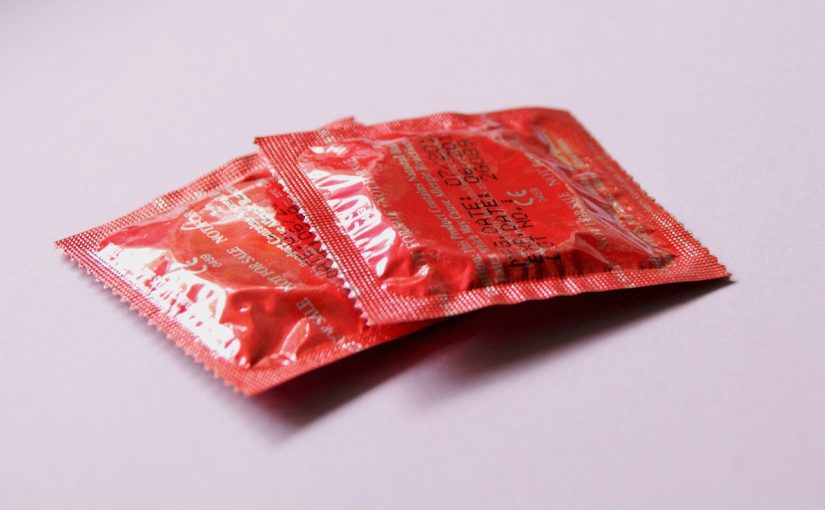Venturing into the heart of East London’s history? It’s not just about the classic London landmarks or the river Thames; it’s a world filled with a unique linguistic heritage that many might find utterly baffling. Here, we’ve curated the most classic Cockney rhyming slang terms, replete with their meanings, origins, and illustrative tales. Whether you’re an East Ender by birth or an intrigued outsider, this guide will navigate you through the labyrinth of London’s iconic dialect. Dive in and converse like a true Cockney! Without further ado, here’s our all-encompassing list of Cockney rhyming slang:
Apples and Pears
- Meaning: Stairs
- Origin: Literal rhyme with ‘stairs’.
- Usage: “I’m just heading up the apples to bed.”
Dog and Bone
- Meaning: Phone
- Origin: Literal rhyme with ‘phone’.
- Usage: “Answer the dog; it might be important.”
Butcher’s Hook
- Meaning: Look
- Origin: Literal rhyme with ‘look’.
- Usage: “Give us a butcher’s at that newspaper.”
Ruby Murray
- Meaning: Curry
- Origin: Named after the popular singer Ruby Murray.
- Usage: “Let’s get a Ruby tonight.”
Trouble and Strife
- Meaning: Wife
- Origin: Literal rhyme with ‘wife’.
- Usage: “The trouble and strife doesn’t like that pub.”
Bread and Honey or Bees and Honey
- Meaning: Money
- Origin: Literal rhyme with ‘money’.
- Usage: “I’m low on bread this week.”
Plates of Meat
- Meaning: Feet
- Origin: Literal rhyme with ‘feet’.
- Usage: “My plates are killing me after that walk.”
Adam and Eve
- Meaning: Believe
- Origin: Literal rhyme with ‘believe’.
- Usage: “I don’t Adam and Eve it!”
Barnet Fair
- Meaning: Hair
- Origin: Literal rhyme with ‘hair’.
- Usage: “I’m getting my barnet done tomorrow.”
Hank Marvin
- Meaning: Starving
- Origin: Rhymes with ‘starving’ and named after the guitarist Hank Marvin.
- Usage: “I’m Hank! Let’s eat.”
Mince Pies
- Meaning: Eyes
- Origin: Literal rhyme with ‘eyes’.
- Usage: “She’s got beautiful mince pies.”
Bee’s and Honey
- Meaning: Money
- Origin: Literal rhyme with ‘money’.
- Usage: “I’ve lost all my bees at the casino.”
Bubble Bath
- Meaning: Laugh
- Origin: Literal rhyme with ‘laugh’.
- Usage: “You’re having a bubble if you think that’s true.”
China Plate
- Meaning: Mate (friend)
- Origin: Literal rhyme with ‘mate’.
- Usage: “He’s my old china.”
Dicky Bird
- Meaning: Word
- Origin: Literal rhyme with ‘word’.
- Usage: “I haven’t heard a dicky bird from him.”
Gregory Peck
- Meaning: Neck
- Origin: Named after the actor Gregory Peck.
- Usage: “Got a sore Gregory today.”
Kettle and Hob
- Meaning: Watch
- Origin: Rhymes with ‘fob’, which was a type of watch.
- Usage: “Look at my new kettle!”
Lemon Squeezy
- Meaning: Easy
- Origin: Rhymes with ‘easy’.
- Usage: “It’s lemon, mate.”
Pony and Trap
- Meaning: Crap
- Origin: Literal rhyme with ‘crap’.
- Usage: “That movie was pony.”
Rosy Lee
- Meaning: Tea
- Origin: Literal rhyme with ‘tea’.
- Usage: “Put the kettle on for a rosy.”
Two and Eight
- Meaning: State (often referring to a distressed state)
- Origin: Literal rhyme with ‘state’.
- Usage: “He was in a right two and eight after hearing that news.”
Ayrton Senna
- Meaning: Tenner (£10)
- Origin: Rhymes with ‘tenner’ and named after the famous race car driver Ayrton Senna.
- Usage: “Lend me an Ayrton till payday.”
Bird Lime
- Meaning: Time (often referring to prison time)
- Origin: Literal rhyme with ‘time’.
- Usage: “He did bird for that robbery.”
Bristol City
- Meaning: Titty
- Origin: Rhymes with ‘titty’ and refers to the English city of Bristol.
- Usage: “She showed her Bristols on the beach.”
Cherry Hog
- Meaning: Dog
- Origin: Literal rhyme with ‘dog’.
- Usage: “Look at that cherry chasing the cat.”
Dustbin Lid
- Meaning: Kid
- Origin: Literal rhyme with ‘kid’.
- Usage: “I’ve got to pick up my dustbin from school.”
Elephant’s Trunk
- Meaning: Drunk
- Origin: Literal rhyme with ‘drunk’.
- Usage: “He was completely elephant’s last night.”
Fireman’s Hose
- Meaning: Nose
- Origin: Literal rhyme with ‘nose’.
- Usage: “He’s got a big fireman’s, hasn’t he?”
Gooses and Ganders
- Meaning: Standers (referring to people standing around)
- Origin: Rhymes with ‘standers’.
- Usage: “A lot of gooses outside the shop today.”
Half Inch
- Meaning: Pinch (to steal)
- Origin: Rhymes with ‘pinch’.
- Usage: “Someone’s half inched my bike.”
Iron Hoof
- Meaning: Poof (derogatory term for a gay man, use is discouraged)
- Origin: Literal rhyme with ‘poof’.
- Usage: “Don’t be such an iron.”
Jack Jones
- Meaning: Alone
- Origin: Rhymes with ‘alone’.
- Usage: “I was sitting there Jack Jones.”
King Lear
- Meaning: Ear
- Origin: Named after Shakespeare’s King Lear. Rhymes with ‘ear’.
- Usage: “Lend me your King Lear.”
Lady from Bristol
- Meaning: Whistle
- Origin: Rhymes with ‘whistle’.
- Usage: “Give us a blow on your lady.”
Meat and Two Veg
- Meaning: Legs (also referring to male genitalia)
- Origin: Rhymes with ‘legs’. The alternative meaning is more literal.
- Usage: “She’s got lovely meat and two.”
North and South
- Meaning: Mouth
- Origin: Literal rhyme with ‘mouth’.
- Usage: “Watch your north and south, mate!”
Oil and Grease
- Meaning: Police
- Origin: Rhymes with ‘police’.
- Usage: “Watch out! Oil and grease are about.”
Peckham Rye
- Meaning: Tie (necktie)
- Origin: Rhymes with ‘tie’ and refers to an area in London called Peckham.
- Usage: “That’s a fancy Peckham you’ve got on!”
Quid Pro Quo
- Meaning: Though not inherently Cockney, it refers to ‘a favor for a favor’ in general terms.
- Origin: Latin phrase meaning “something for something.”
- Usage: “He helped me, so I did a quid pro quo and helped him back.”
Rabbit and Pork
- Meaning: Talk
- Origin: Literal rhyme with ‘talk’.
- Usage: “Stop rabbiting and get to work!”
Scooby Doo
- Meaning: Clue
- Origin: Rhymes with ‘clue’, named after the famous cartoon dog.
- Usage: “I haven’t got a Scooby why he did that.”
Tea Leaf
- Meaning: Thief
- Origin: Rhymes with ‘thief’.
- Usage: “Some tea leaf nicked my wallet!”
Uncle Ned or Uncle Fred
- Meaning: Bed
- Origin: Literal rhyme with ‘bed’.
- Usage: “I’m knackered, off to Uncle Ned.”
Vera Lynn
- Meaning: Gin
- Origin: Rhymes with ‘gin’, named after the famous British singer.
- Usage: “Pour me a Vera, will you?”
Whistle and Flute
- Meaning: Suit (as in clothing)
- Origin: Rhymes with ‘suit’.
- Usage: “He came dressed in a fancy whistle.”
X Marks the Spot
- Meaning: Though not inherently Cockney, it traditionally refers to the main focus or target.
- Origin: From pirate tales, where “X” on a map denotes buried treasure.
- Usage: “Look there, X marks the spot!”
You and Me
- Meaning: Tea (as in the beverage)
- Origin: Rhymes with ‘tea’.
- Usage: “How about a cup of you and me?”
Zig and Zag
- Meaning: Fag (cigarette, UK slang)
- Origin: Rhymes with ‘fag’.
- Usage: “Got a spare zig and zag?”
Frog and Toad
- Meaning: Road
- Origin: Rhymes with ‘road’.
- Usage: “Just head down the frog, and it’s on your left.”
Irish Jig
- Meaning: Wig
- Origin: Rhymes with ‘wig’.
- Usage: “That’s a flashy Irish she’s wearing.”
Khyber Pass
- Meaning: “Arse” (British for “butt”)
- Origin: Rhymes with ‘arse’. Refers to a mountain pass in Pakistan.
- Usage: “Pain right in the Khyber.”
Orchestra Stalls
- Meaning: Balls (testicles)
- Origin: Rhymes with ‘balls’.
- Usage: “He got hit right in the orchestra stalls!”
Queen’s Speech
- Meaning: Peach
- Origin: Rhymes with ‘peach’. Refers to the annual speech by the Queen.
- Usage: “That pie was made from fresh Queen’s Speech.”
Raspberry Tart
- Meaning: Fart
- Origin: Rhymes with ‘fart’.
- Usage: “Did you just let out a raspberry?”
Sherbet Dab
- Meaning: Cab (taxi)
- Origin: Rhymes with ‘cab’.
- Usage: “Let’s hail a sherbet to get home.”
Zebra Crossing
- Meaning: Bossing (as in being dominant or in charge)
- Origin: A playful term derived from the pedestrian crossing, used more colloquially.
- Usage: “She’s zebra crossing everyone around today!”
Currant Bun
- Meaning: Sun
- Origin: Rhymes with ‘sun’.
- Usage: “The currant bun’s out today, lovely weather!”
Gooseberry Pudding
- Meaning: Gooding (doing good or being good)
- Origin: A playful term that resonates with ‘gooding’.
- Usage: “Stop gooseberry pudding around and get to work!”
Isle of Wight
- Meaning: Right (as in correct or the direction)
- Origin: Rhymes with ‘right’.
- Usage: “You’re Isle of Wight, mate.”
Jimmy Riddle
- Meaning: Piddle (a colloquial term for urinate)
- Origin: Rhymes with ‘piddle’.
- Usage: “I’m off for a quick Jimmy.”
Lady Godiva
- Meaning: Fiver (5-pound note)
- Origin: Rhymes with ‘fiver’, referencing the legend of Lady Godiva.
- Usage: “Lend me a Lady, will ya?”
Mutton Jeff
- Meaning: Deaf
- Origin: Rhymes with ‘deaf’.
- Usage: “Turn up the volume, I’m a bit mutton!”
Nanny Goat
- Meaning: Boat
- Origin: Rhymes with ‘boat’.
- Usage: “We took the nanny out on the Thames.”
Oliver Twist
- Meaning: Wrist
- Origin: Rhymes with ‘wrist’, referencing the Dickensian character.
- Usage: “I sprained my Oliver playing football.”
Rub-a-Dub
- Meaning: Pub
- Origin: Rhymes with ‘pub’.
- Usage: “Let’s head down to the rub-a-dub.”
Sweeney Todd
- Meaning: Odd
- Origin: Rhymes with ‘odd’, referencing the infamous fictional barber.
- Usage: “That guy’s a bit Sweeney, isn’t he?”
Coals and Coke
- Meaning: Broke (having no money)
- Origin: Rhymes with ‘broke’.
- Usage: “I can’t come out tonight, I’m coals.”
Dicky Dirt
- Meaning: Shirt
- Origin: Rhymes with ‘shirt’.
- Usage: “I bought a new dicky for the interview.”
Aunt Joanna
- Meaning: Piano
- Origin: Rhymes with ‘piano’.
- Usage: “She’s playing the old Aunt Joanna tonight.”
Inch of Pin or Needle and Pin
- Meaning: Gin
- Origin: Rhymes with ‘gin’.
- Usage: “Pour me an inch, please.”
Jack Tar
- Meaning: Sailor or seaman
- Origin: Rhymes with ‘sailor’ and also a historical term for sailors.
- Usage: “He’s an old Jack Tar; sailed the world.”
Kick and Prance
- Meaning: Dance
- Origin: Rhymes with ‘dance’.
- Usage: “Are you going to the kick and prance later?”
Lemon Squash
- Meaning: Wash
- Origin: Rhymes with ‘wash’.
- Usage: “Give your hands a good lemon before dinner.”
Raspberry Ripple
- Meaning: Nipple
- Origin: Rhymes with ‘nipple’.
- Usage: “It’s so cold you could see her raspberries!”
That’s it for our list of Cockney rhyming slang phrases. We hope you’ve found this journey through East London’s linguistic history enlightening. While language continually evolves, these Cockney terms have roots deep in London’s past and are fondly remembered by many. If you think we’ve missed any iconic Cockney rhyming slang, do let us know in the comments below. Keep exploring the unique lingo of the East End!👍😊
Fascinated by Slang? Explore More!
Discover other captivating slang terms and their origins. Here are a few more gems for you:


